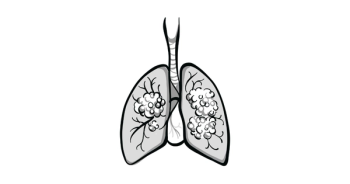
Realizing the Promise of Biomarker Testing in Lung Cancer and Beyond
Luis E. Raez, MD, FACP, FCCP, immediate past president of Florida Society of Clinical Oncology, evaluates the role of biomarker testing for lung cancer and other disease types.
Luis E. Raez, MD, FACP, FCCP, is the medical director and chief scientific officer of Memorial Cancer Institute, as well as director of the thoracic oncology program for Memorial Health Care System. He is aslo a clinical professor of medicine at Florida International University (FIU), Research Professor of Medicine at Florida Atlantic University (FAU), and visiting professor of medicine at Cayetano Heredia University in Peru. Currently, Dr Raez designs phase 1-3 clinical trials with new chemotherapeutic agents and combinations. Dr Raez does translational research in the areas of cancer vaccines and has been funded by National Cancer Institute and the pharmaceutical industry.
This year alone, more than 1.9 million Americans will face a new cancer diagnosis, including more than 236,000 people who will be diagnosed with lung cancer.1
As a medical oncologist, it is my duty to provide treatment and take care of people who have cancer. Throughout my career, I have been fortunate to witness a significant improvement in how we understand cancer; however, common misconceptions about how we treat this disease still exist. While Lung Cancer Awareness Month may have just ended, it is crucial to continue spreading education and awareness about the disease, our recent advances in diagnosis and treatment, as well as the enduring health disparities that exist across the cancer continuum.
As a critical tool at the forefront of personalized medicine, biomarker testing is fundamentally transforming and enhancing the way in which we diagnose and treat cancer. It is crucial to continue spreading awareness about the importance of comprehensive biomarker testing to improve patient outcomes.
The Promise of Biomarker Testing
Our understanding of cancer has evolved. Within broad cancer types, such as lung cancer, we now know that there are many subtypes, some of which are driven by specific genomic alterations. One goal of a cancer treatment plan is to determine whether one of these specific genomic alterations is the cause of a patient’s cancer diagnosis.
Biomarker testing, also known as genomic testing, looks for alterations in cancer’s genes and can help identify the underlying drivers of a tumor. Results of biomarker testing can show which treatment is likely to work best for the patient. This critical step in a cancer patient’s treatment journey is what allows clinicians to prescribe targeted, precision therapies and, just as importantly, avoid treatments that may not work as well.
Though truly capitalizing on the promise of biomarker testing requires ensuring equitable access to high-quality diagnostic testing. Despite biomarker testing’s potential to improve progression-free survival and overall survival, access barriers may be impacting health outcomes for racial and ethnic minorities and other medically underserved populations.2
The Evolution of Precision Medicines
In many cases, targeted therapies are available to treat genetic aberrations that can effectively stop the spread of and ultimately inhibit tumor growth.
Compared with traditional treatments like chemotherapy that kill both healthy cells and cancer cells, targeted therapies are less toxic to healthy cells. Patients who are treated with targeted therapies tend to have fewer adverse events, better disease outcomes, and improved quality of life.3
Without comprehensive biomarker testing, doctors and patients have limited knowledge of whether a specific alteration is driving the way cancer behaves and if a targeted treatment can be recommended. This knowledge empowers doctors to determine eligibility for targeted treatment options or clinical trials and can avoid potentially less effective treatment choices.
Furthering the adoption of biomarker testing depends upon addressing the system-wide barriers that stand in the way of greater utilization. Reimbursement challenges and logistical concerns are commonly cited by providers, which could be an acute concern for those working with predominantly underserved communities.4
The Path Forward
On November 11 and 12, the Florida Society of Clinical Oncology (FLASCO) brought together oncologists with the shared mission of closing health equity gaps to discuss new research, advocacy, and policy around cancer disparities. The event touched on numerous key issues driving health inequities, including how disparities in molecular profiling are responsible for several of the inferior cancer treatment outcomes in minority patients, particularly due to the lack of adequate knowledge of cancer they are facing and the lack of proper treatment.
If you want more robust information about the totality of the health of your patients, we encourage you to learn more about biomarker testing and why it is important.5
References:
1. Cancer facts & figures. American Cancer Society. Accessed November 14, 2022. https://bit.ly/3uN2O8B
2. Bruno DS, Hess LM, Li X, Su EW, Yajun EZ, Patel M. Racial disparities in biomarker testing and clinical trial enrollment in non-small cell lung cancer (NSCLC). J Clin Oncol. 2021;39(15_suppl): 9005. doi:10.1200/JCO.2021.39.15_suppl.9005
3. Biomarker testing is changing the face of lung cancer. Lung Cancer Initiative of North Carolina. Accessed November 14, 2022. https://bit.ly/3uKvtuX
4. Kaminski A, Szamreta EA, Shah R, et al. Barriers to next-generation sequencing despite increased utilization: U.S. physician survey results. J Clin Oncol. 2021;39(15_suppl):e18754. doi:10.1200/JCO.2021.39.15_suppl.e18754
5. What is comprehensive biomarker testing? Bridging the biomarker gaps. FLASCO. Accessed December 15, 2022. https://bit.ly/3FtxpNp


















